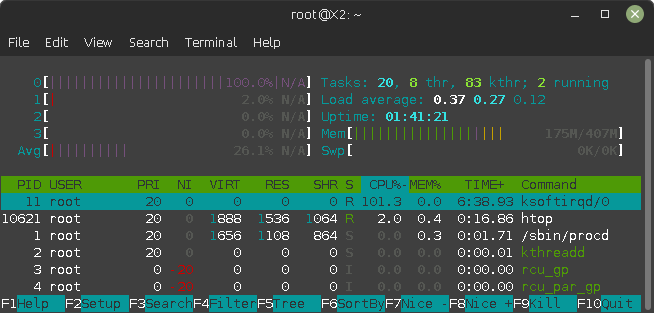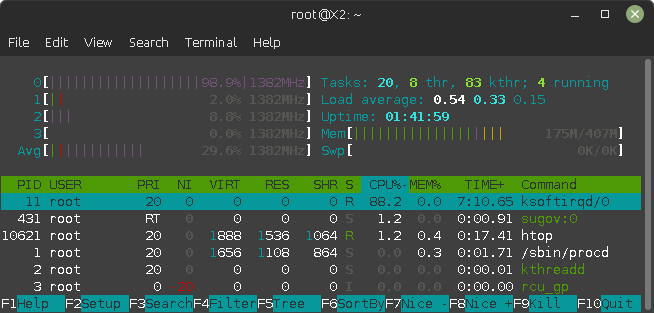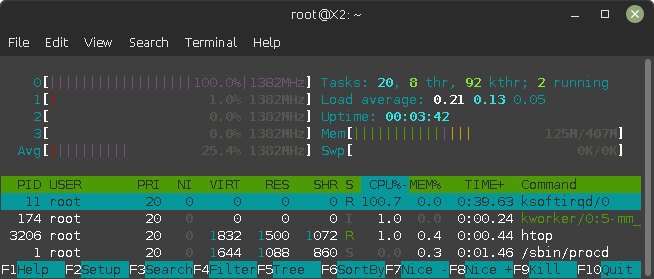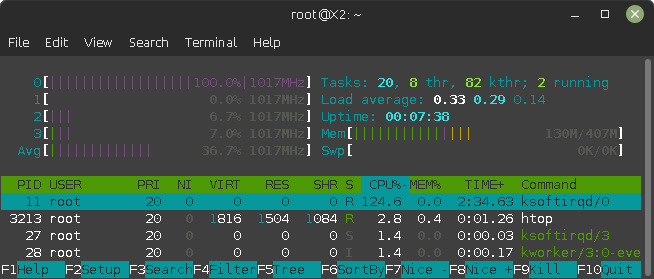I did I few WAN-LAN full duplex tests.
In my test scenario (FULL DUPLEX), I get random results, still I can't see any big measurable differences from those IRQ changes.
WAN-WiredLAN Full duplex test:
iperf3 -c 192.168.0.xxx --bidir -t 30
Your latest build r0-060646b.
-> Test #1:
GRO ON, Packet Steering ON, Software flow offloading ON, DCHARD-IRQ OFF, SNOW-IRQ OFF, WIFI OFF.
RUN#1:
[ ID][Role] Interval Transfer Bitrate Retr
[ 5][TX-C] 0.00-30.00 sec 3.20 GBytes 916 Mbits/sec 0 sender
[ 5][TX-C] 0.00-30.00 sec 3.20 GBytes 915 Mbits/sec receiver
[ 7][RX-C] 0.00-30.00 sec 603 MBytes 169 Mbits/sec 311 sender
[ 7][RX-C] 0.00-30.00 sec 602 MBytes 168 Mbits/sec receiver

-> RUN#2:
[ ID][Role] Interval Transfer Bitrate Retr
[ 5][TX-C] 0.00-30.00 sec 3.16 GBytes 905 Mbits/sec 335 sender
[ 5][TX-C] 0.00-30.00 sec 3.16 GBytes 904 Mbits/sec receiver
[ 7][RX-C] 0.00-30.00 sec 1.96 GBytes 562 Mbits/sec 327 sender
[ 7][RX-C] 0.00-30.00 sec 1.96 GBytes 561 Mbits/sec receiver

I've see this before, results are inconsistent between different runs for the same test conditions. It depends how the load is distributed.
I've posted the worst and the best test runs possible out of more than 10 runs.
-> Test #2:
GRO ON, Packet Steering ON, Software flow offloading ON, DCHARD-IRQ OFF, SNOW-IRQ ON, WIFI OFF.
Same results as Test#1, so I didn't copy past them here.
I can't see difference with SNOW-IRQ ON in this test scenario.
-> Test #3:
GRO ON, Packet Steering ON, Software flow offloading OFF, DCHARD-IRQ OFF, SNOW-IRQ OFF, WIFI OFF.
Full duplex results in different runs:
~400/600
~900/600
~900/600
~300/600
~800/300
-> Test #4:
GRO ON, Packet Steering ON, Software flow offloading OFF, DCHARD-IRQ OFF, SNOW-IRQ ON, WIFI OFF.
Full duplex results in different runs:
~900/750
~920/670
~920/220
~920/670
Too random results to make a conclusion.
Note: I can always get 930/930 max full-duplex wan-lan speed with these settings:
GRO OFF, Packet Steering ON, Software flow offloading ON.

